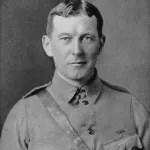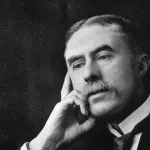I am told by many of you that I must forgive and so I shall
after an Indian woman puts her shoulder to the Grand Coulee Dam
and topples it. I am told by many of you that I must forgive
and so I shall after the floodwaters burst each successive dam
downriver from the Grand Coulee. I am told by many of you
that I must forgive and so I shall after the floodwaters find
their way to the mouth of the Columbia River as it enters the Pacific
and causes all of it to rise. I am told by many of you that I must forgive
and so I shall after the first drop of floodwater is swallowed by that salmon
waiting in the Pacific. I am told by many of you that I must forgive and so I shall
after that salmon swims upstream, through the mouth of the Columbia
and then past the flooded cities, broken dams and abandoned reactors
of Hanford. I am told by many of you that I must forgive and so I shall
after that salmon swims through the mouth of the Spokane River
as it meets the Columbia, then upstream, until it arrives
in the shallows of a secret bay on the reservation where I wait alone.
I am told by many of you that I must forgive and so I shall after
that salmon leaps into the night air above the water, throws
a lightning bolt at the brush near my feet, and starts the fire
which will lead all of the lost Indians home. I am told
by many of you that I must forgive and so I shall
after we Indians have gathered around the fire with that salmon
who has three stories it must tell before sunrise: one story will teach us
how to pray; another story will make us laugh for hours;
the third story will give us reason to dance. I am told by many
of you that I must forgive and so I shall when I am dancing
with my tribe during the powwow at the end of the world.
Sherman Alexie slams the environmental destruction of settler-colonialism as we travel on an upstream course towards the powwow at the end of the world.
1. There is a steady build over the course of this poem, and a journey towards the final scene. What images or words stand out over the poem’s trajectory?
2. Why do you think the poet says “I am told by many of you and so I shall”?
3. Is this poem funny? Is it enraged? Is it grieving? How do you read the tone, and does it shift anywhere?
4. What do you think the poet means with the lines, “…and starts the fire / which will lead all the lost Indians home”?
5. If you were reciting this poem, how would you handle both the repetition of the declarative phrase beginning each sentence and the build / the journey of the poem?
Writing exercise: Choose a declarative statement, in the spirit of “I am told by many of you that I must forgive and so I shall after…” and write a poem around it that takes a journey.
Useful links:
https://www.sutori.com/en/story/powwow-at-the-end-of-the-world--ATjfVQ95h5wKDhhiJ4ChWUNp
Sherman Alexie, “The Powwow at the End of the World” from The Summer of Black Widows. Copyright © 1996 Hanging Loose Press. Reprinted by permission of Hanging Loose Press.
Source: The Summer of Black Widows (Hanging Loose Press, 1996).





